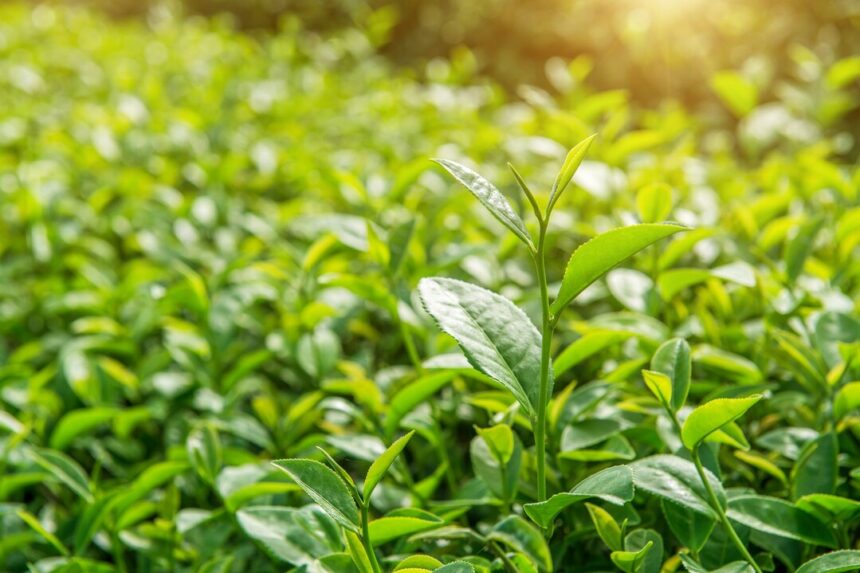While South Africa may be better known for its wine and fruit production, its tea industry is steadily gaining recognition for its unique flavors and exceptional quality. With its diverse climate, fertile soil, and skilled growers, South Africa has the potential to become a prominent player in the global tea market. To unlock this potential and maximize both quality and yield, tea producers in South Africa are implementing innovative techniques and practices. Here, we delve into some of the key strategies for elevating tea production in the region:
- Microclimate Selection: South Africa’s varied topography offers a range of microclimates, each with its own unique characteristics. Tea growers carefully select the ideal location for cultivation based on factors such as altitude, temperature, rainfall, and soil composition. By matching the tea plant to its optimal growing conditions, farmers can maximize yield and produce tea with distinct flavors and aromas.
- Varietal Selection: Different tea cultivars exhibit varying flavor profiles, leaf shapes, and growth habits. In South Africa, tea producers are experimenting with a diverse range of cultivars, including Camellia sinensis sinensis (Chinese tea) and Camellia sinensis assamica (Assam tea). By selecting the right cultivars for their specific growing conditions, farmers can achieve superior quality and yield.
- Organic and Sustainable Practices: Increasingly, consumers are seeking tea that is grown using organic and sustainable methods. South African tea farmers are embracing organic farming practices, such as natural fertilization, composting, and biological pest control, to minimize environmental impact and produce healthier, more flavorful tea. Sustainable practices not only benefit the environment but also contribute to the long-term viability of the tea industry.
- Precision Agriculture: Precision agriculture techniques, including soil mapping, remote sensing, and precision irrigation, are being adopted to optimize resource use and improve efficiency. By precisely managing inputs such as water, fertilizer, and pesticides, farmers can minimize waste, reduce costs, and enhance yield and quality.
- Pruning and Harvesting Techniques: Proper pruning and harvesting practices are essential for promoting healthy tea growth and maximizing yield. South African tea growers employ skilled laborers to hand-harvest tea leaves at the peak of freshness and flavor. Careful attention is paid to timing, frequency, and technique to ensure a bountiful harvest of high-quality leaves.
- Processing Innovation: Tea processing methods significantly impact the flavor, aroma, and appearance of the final product. South African tea producers are investing in innovative processing techniques, such as withering, rolling, oxidation, and drying, to preserve the natural characteristics of the tea leaves and enhance their sensory qualities. Advanced processing equipment and technologies help maintain consistency and quality throughout the production process.
- Quality Control and Certification: Quality control measures are essential for ensuring that only the finest tea leaves make it to market. South African tea producers implement rigorous quality control protocols to assess factors such as leaf appearance, aroma, liquor color, and taste. Certifications such as Fairtrade, Rainforest Alliance, and Organic provide additional assurance of quality and sustainability, helping to differentiate South African tea in the global market.
- Investment in Research and Development: Continued investment in research and development is critical for driving innovation and improvement in the tea industry. South African tea producers collaborate with researchers, agronomists, and agricultural institutions to develop new cultivars, improve cultivation techniques, and address challenges such as pests, diseases, and climate change. By staying at the forefront of scientific knowledge and technological advancements, tea farmers can enhance productivity, quality, and resilience.
- Market Differentiation and Branding: With growing competition in the global tea market, effective branding and marketing strategies are essential for standing out from the crowd. South African tea producers leverage the country’s rich cultural heritage, natural beauty, and commitment to sustainability to create unique brand identities that resonate with consumers. Storytelling, packaging design, and social media engagement are used to convey the values and qualities that set South African tea apart.
- Education and Training: Finally, education and training programs play a vital role in equipping tea farmers with the knowledge and skills needed to succeed in the industry. Workshops, seminars, and hands-on training sessions cover topics such as agronomy, processing techniques, quality assurance, and marketing. By investing in the professional development of tea producers, South Africa can nurture a skilled workforce capable of producing world-class tea.
In conclusion, South Africa’s tea industry holds tremendous potential for producing high-quality, sustainable tea that appeals to discerning consumers around the world. By embracing innovative techniques, sustainable practices, and a commitment to excellence, tea producers in South Africa can enhance both the quality and yield of their crops, positioning themselves as leaders in the global tea market. With dedication, passion, and a focus on continuous improvement, the future of South African tea looks bright indeed.
Join 'Farmers Mag' WhatsApp Channel
Get the latest Farming news and tips delivered straight to your WhatsApp
CLICK HERE TO JOIN






